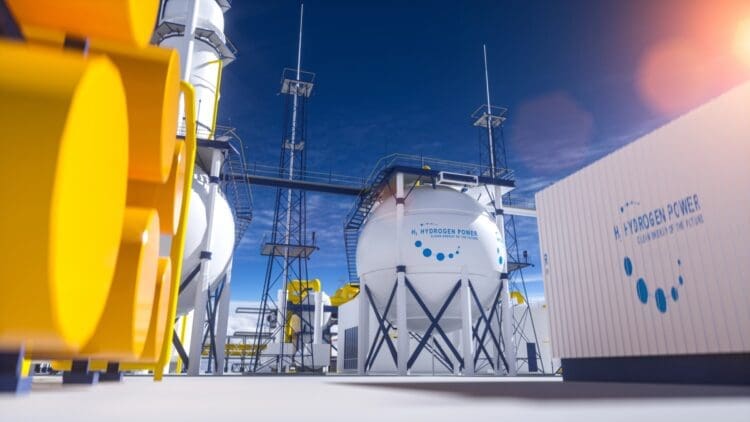Following the recent reaffirmation of clean energy and emission targets at the G20 Summit in South Africa, several nations are committed to revolutionizing the global energy market over the coming years amid calls to diversify energy production. Climate change affects us all, and the world has been contemplating methods to deliver on clean energy targets that place increased priority on the renewable energy sector. Now, Bosch has announced the commissioning of a 2.5 MW hydrogen electrolyzer at its Bamberg facility in its home nation of Germany, marking a new future for the European energy market.
Hydrogen is finally receiving the attention it deserves from the global energy market
Several energy-rich nations are finally turning to the untapped energy generation potential of hydrogen. Even nations that have turned their nose up at the renewable energy sector are developing new and pioneering hydrogen projects, reflecting the change in global sentiments for the renewable energy market. The vast majority of nations reaffirmed their commitments to clean energy production at the recent G20 Summit in South Africa.
Germany is known as a remarkably progressive nation that has no problems adapting to international trends, especially in the energy sector. The nation has become a regional leader in the adoption of the renewable energy market and boasts more than 50% of the electricity produced coming from renewable energy sources.
Bosch has jumped on board the renewable energy bandwagon in Germany
The iconic company recently announced it has successfully commissioned a 2.5 MW hydrogen electrolyzer at its Bamberg facility. Bosch’s electrolyzer converts water into hydrogen and oxygen using renewable energy, which is then used to supply the market with clean energy, reducing reliance on older, more harmful energy generation methods.
Bosch has developed its hydrogen infrastructure for the new era of energy generation in Europe
Europe has welcomed the renewable energy market with open arms in recent years, with Germany playing a vital role in advancing the use of renewable energy resources. The new electrolyzers were built in Germany by FEST, and at the heart of them are two Bosch Hybrion electrolysis stacks, each delivering 1.25 megawatts of power.
Once the electrolyzer is filled, it delivers over 1 metric ton of hydrogen daily, which would be enough to power an electric 40-ton truck fitted with a Bosch fuel-cell power module for an astonishing 14,000 kilometers. The company has noted that a Bosch fuel-cell power module can continuously operate inside a lifetime container to test durability.
Bosch is aiming to transform its energy portfolio to meet increased demand for clean energy
The company has been operating for nearly 150 years and has, over time, adapted to the needs of the global energy and industrial markets. The company has noted that large-scale production of its fuel-cell power module began in Stuttgart in mid-2023 and was recently nominated for the German President’s Future Prize, reflecting the company’s excellent standards.
Germany’s proclivity for the renewable energy sector has been on full display recently, with Lhyfe opening Germany’s largest commercial green hydrogen facility. This overwhelming embrace of renewable energy is perfectly aligned with the EU’s clean energy requirements.
Bosch is covering all its bases to ensure the success of its new hydrogen system
The firm noted that it has opened a second test station for Hybrion PEM electrolysis stacks at the Bamberg facility, ensuring the real-world capabilities of its hydrogen electrolyzer. The European continent has seen several nations approving new and pioneering hydrogen projects recently, such as Greece giving its approval for a plan to expand an upcoming solar-powered green hydrogen complex. The global energy market is changing, and Germany is aiming to lead the diversification of the region’s energy sector.





